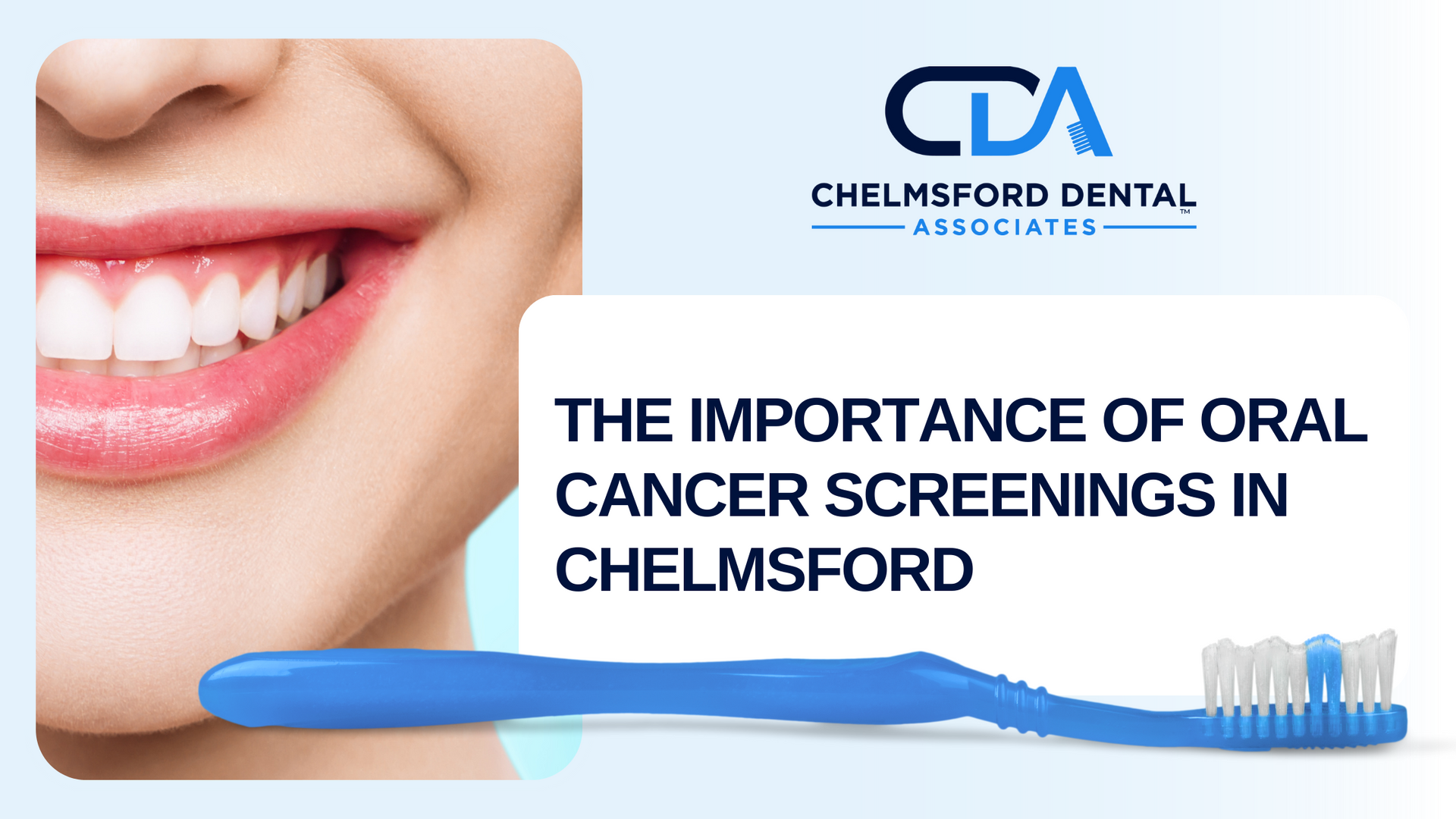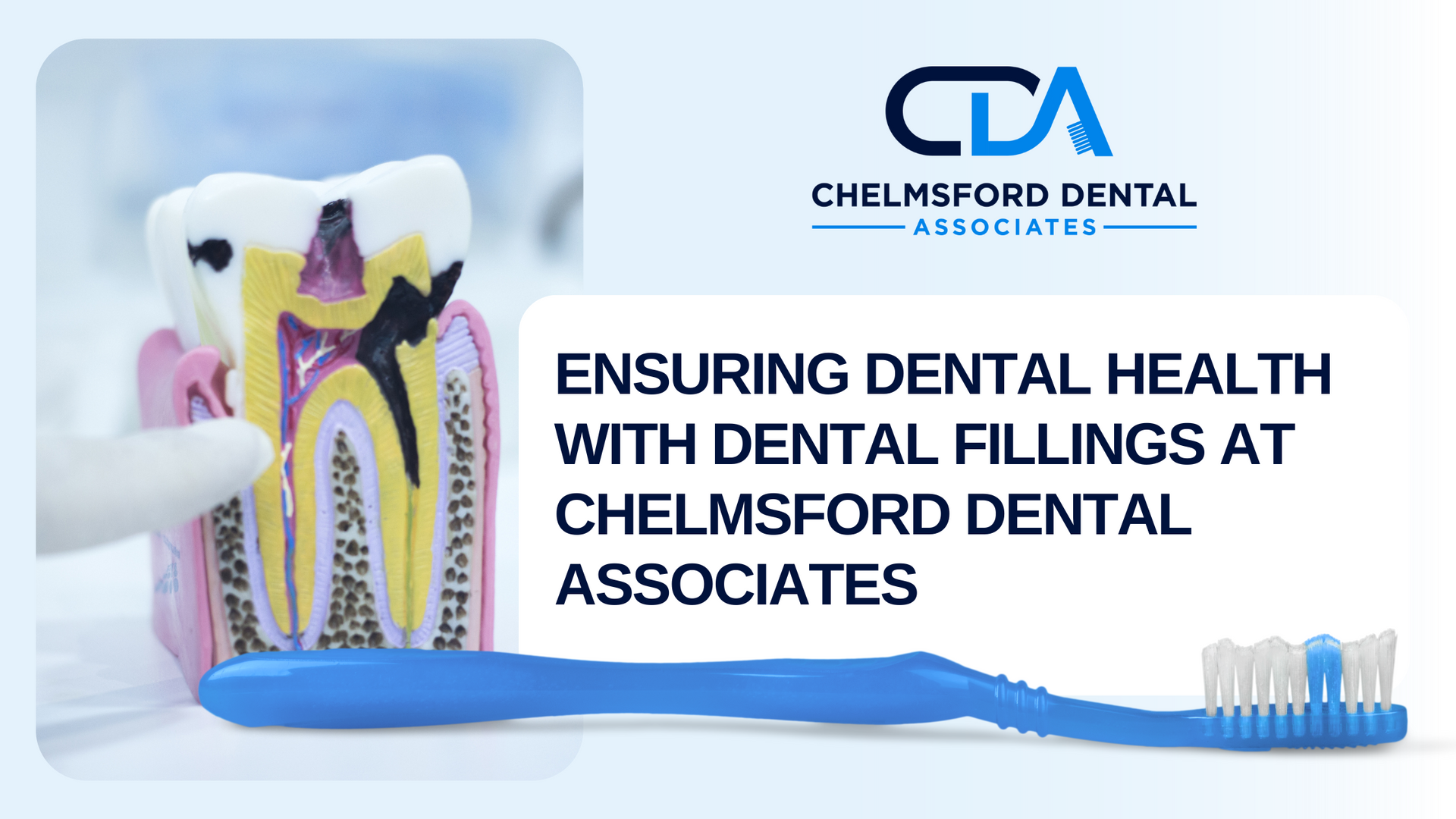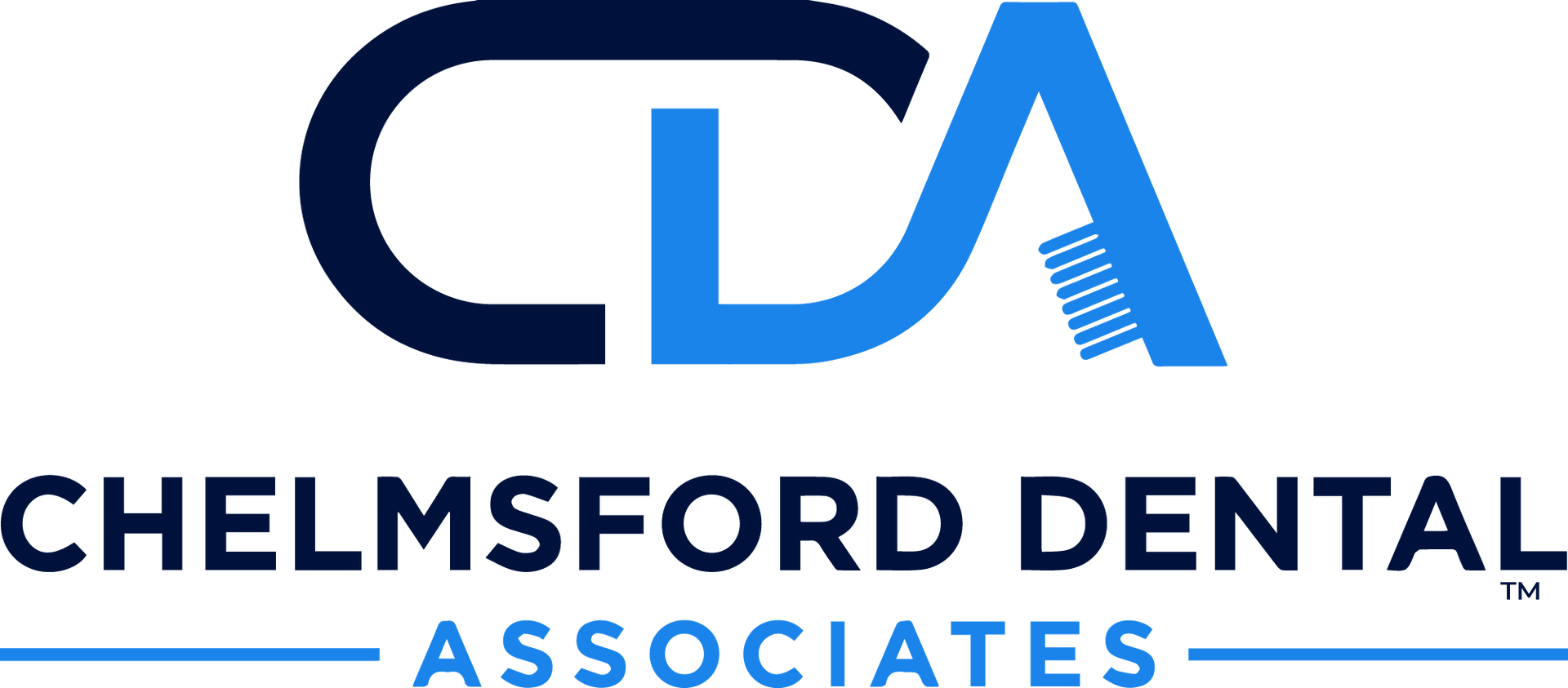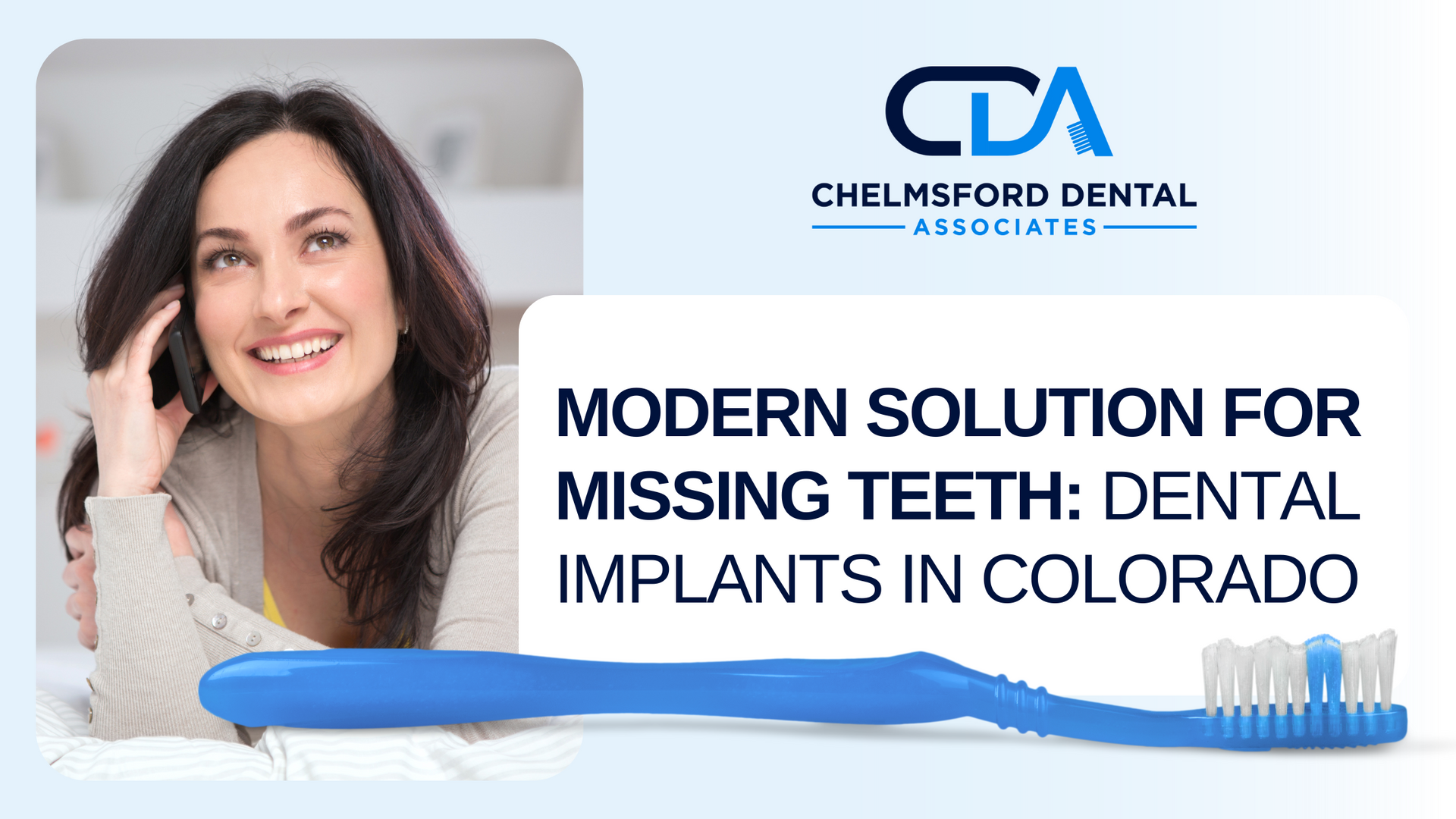Essential Steps for Caring for Your Teeth Post-Cavity Treatment

Source: Dr. Marketing
A cavity is the result of tooth decay, which can impact the coating of your tooth (enamel) and the inner layer (dentin). Symptoms of a cavity will ultimately be determined by how large it is and exactly where it is within your mouth. As the cavity becomes larger, symptoms can worsen and include toothache, sensitive teeth, discomfort when eating certain foods, holes or pits in your teeth, discomfort when you bite down, and tooth stains. Our dental team at Chelmsford Dental Associates, which is in Chelmsford, Massachusetts, has explained why people experience cavities and the importance of treating them immediately.
Why people get cavities

Dental patients that eat foods with carbohydrates (bread, milk, soda, fruit, cereal, cake, candy) will then have these foods stay on their teeth, which causes decay. Bacteria within your mouth will create acids from this. Then, the bacteria, acid, saliva, and food debris will combine to form plaque, which clings to your teeth. Acids from the plaque will dissolve the enamel and create holes (cavities) in your teeth.
Although many patients believe that only children experience cavities, adults will notice them as they age. Your gums pull away from your teeth over time, but they can also do this because of gum disease, which exposes the roots of your teeth to plaque. Also, older adults can sometimes see decay around the edges of their fillings, and seniors usually require a lot of dental work because they didn't get enough fluoride or great dental care when they were younger.
All dental patients are at risk of cavities, but some factors that can increase your likelihood are:
- Clingy foods and drinks: sugar, milk, soda, chips, cereal, and ice cream are a few examples of foods that can remain on your teeth and create decay.
- Insufficient brushing: if you don't brush your teeth after eating and drinking, you allow plaque and decay an opportunity to form.
- Missing fluoride: fluoride is a mineral found in toothpaste, mouthwash, and certain tap water. It assists in preventing cavities and can undo the early stages of tooth concerns.
- Dry mouth: saliva flow is very important because it washes off food and plaque from your teeth, which helps prevent decay.
- Eating disorders: if you throw up repeatedly, stomach acid can dissolve tooth enamel and later result in cavities.
- Acid reflux disease: like eating disorders, this condition pushes stomach acid up into your mouth and can cause cavities.
Cavity symptoms

- Toothache
- Tooth sensitivity
- Mild to sharp discomfort when eating or drinking something hot, cold, or sweet
- Visible holes or pits in your teeth
- Discomfort when you bite down
- Staining (white, black, or brown) on any surface of a tooth
Why patients need to get filling treatment for cavities
Without a filling treatment, your cavity will only get worse, and you will likely experience more discomfort, especially if you are already following a poor oral hygiene routine. One of our dentists will fill in the hole with a filling consisting of silver alloy, gold, porcelain, or a composite resin.
After-care tips for cavity treatment

- Brushing and flossing are essential
- Avoid sticky and hard foods
- Follow the instructions provided by our dentists
- Use mouthwash after you brush your teeth
- Do not grind your teeth and, if you do grind your teeth during the day or night, inform our dentists before beginning your treatment
How long should fillings last? Will they need to be repaired?
Dental fillings can weaken after a certain period of time, which causes them to break down and develop rough edges. As a result, plaque can build up more easily and become harder for our dentists to remove. If you have received a dental device for your cavity, it can also stop fitting properly over time and that means decay can start forming beneath them.
However, dental fillings can usually last for up to ten years. It might be even longer if you are adhering to good dietary choices and oral health practices. When your filling wears down or cracks, our dentists will see it during a routine check-up, so do not be alarmed. Once it reaches a stage where the filling is no longer supporting the tooth and keeping bacteria out, one of our dentists will put in a replacement.
Tips to prevent future cavities

- Brush your teeth after eating and drinking: use a fluoride-containing toothpaste and brush twice per day, while also doing so after a meal. Clean between your teeth with floss or an interdental cleaner.
- Rinse your mouth: when our dentists believe you have a higher risk of developing cavities, he or she might suggest that you use a mouth rinse with fluoride.
- Visit our dental practice regularly: professional cleanings and oral examinations will help our dentists identify issues early and prevent future concerns. Our dentists can create a schedule that is suitable for you.
- Drink tap water: many public water supplies include fluoride and that can help reduce tooth decay. When you drink water that does not contain fluoride, you lose the benefits that the mineral offers.
- Dental sealants: this is a plastic protective coating that is applied to the chewing surface of your back teeth. It will seal off crannies and grooves that often collect food, which will protect tooth enamel from acid and plaque.
- Avoid snacks and sugary beverages: eating snacks and drinking beverages other than water will only allow the opportunity for bacteria to create acids that can negatively affect tooth enamel.
- Eat healthy foods: there are foods and beverages that are more helpful for your teeth. Fresh fruits and vegetables increase your saliva flow, and sugar-free gum can work to wash away food particles.
- Fluoride treatment: our dentists could recommend fluoride treatment if you are not already getting enough fluoride through brushing and other sources. If your risk of tooth decay is greater, you might require a customized tray that will fit over your teeth. Our dentist will then apply the prescription fluoride onto the tray.
- Antibacterial treatment: if you have a medical condition and are more vulnerable to tooth decay, our dentists might prescribe special antibacterial mouth rinses or other solutions that could reduce the bacteria in your mouth.
- Combined treatments: xylitol-based gum can be helpful, and you can combine it with prescription fluoride and an antibacterial rinse to decrease your risk of cavities.

Cavities can become concerning if you ignore them, do not change your oral health habits for the better, and receive proper treatment. Contact our team at Chelmsford Dental Associates, located in Chelmsford, Massachusetts, and learn how we can help you avoid cavities in the future.


We are the local Chelmsford dentist near you!
It’s Your Smile, Let Us Help You Make It Your Best
Request A Dental Appointment
We look forward to seeing you soon!
Please note, we will do our best to accommodate your schedule.
As a courtesy to all of our patients (in/out of network), we take care of the claim filing and processing. We do have dental financing options for those patients who qualify.
Thank you so much for contacting our dental practice. While we strive to respond to all inquiries right away, we may be away from the desk helping a patient or out of the office. We will do our best to reach back to you shortly.
Please note, if this is a dental emergency, it would be best to call our practice as this is the fastest way to reach us (978) 256-2561.
Please try again later
Chelmsford Dentist
We understand that trying to find a nearby dentist you can trust is difficult, that is why we make it easy for you to work with us.
(978) 256-2561
18 North Rd, Chelmsford, MA, 01824
desk@chelmsforddental.com
Helpful Links
Dental Practice Hours
- Monday
- -
- Tuesday
- -
- Wednesday
- -
- Thursday
- -
- Friday
- -
- Saturday
- -
- Sunday
- Closed
All Rights Reserved | Chelmsford Dental Associates
All Rights Reserved | Chelmsford Dental Associates
Dentist Website Diagnosed, Treated, and Cured by Dr. Marketing Inc

